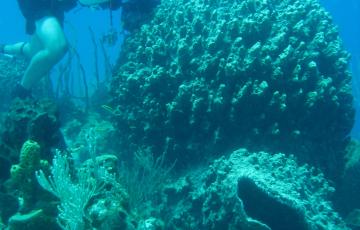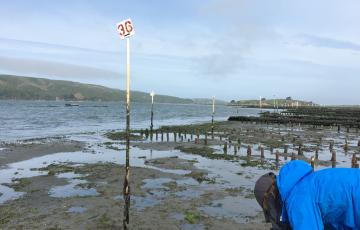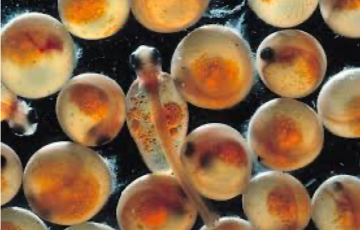What's an experiment, really?
To download the activity page, click here.
How fast does ice melt?
All of our scientists ask questions and design experiments to answer those questions. What makes up a research project? Below, we try to understand how fast an ice cube melts under different conditions - in plain tap water or in water with salt.
PROBLEM: Does adding salt make ice melt faster or slower?
HYPOTHESIS: What do you think? Will salt make the ice melt faster or slower?
PROCEDURE: Below are the steps to answer our question. Ask an adult in your house if you can give it a try.
- Pick out two cups of equal size. Using tape, label one “control” and one “salt.” Fill them with equal amounts of water.
- We won’t add anything to the control. It is useful for making comparisons. Add a big spoonful of salt to the cup labeled salt.
- Add one ice cube to each cup and start a timer or make a note of the time.
DATA AND OBSERVATIONS: We’re going to use a table to take notes. We’ll compare the two samples, so just write a + for the sample that has more ice at each time point and a - for the one that has less ice.
Time After Start Time
| 30 seconds | 60 seconds | 90 seconds | Time until fully melted | |
|---|---|---|---|---|
| Control | ||||
| Salt |
CONCLUSIONS: Based on your data table, can you answer the question: Does adding salt make ice melt faster or slower? If so, what is the answer?
APPLICATIONS: At IMET, we also like to think about how our research may be used to improve lives. Can you think of any reasons why we might want to melt ice faster?
Designing an experiment (or solving a mystery)
In the last activity, we guided you through designing an experiment to answer a question. What have you been wondering about recently? Maybe there’s a strange noise in the house you can’t identify. You could take notes each time you hear it to figure it out. Maybe you wonder whether cake batter bakes faster in muffin tins or cake pans. Design your experiment below then ask an adult if they can help you.


